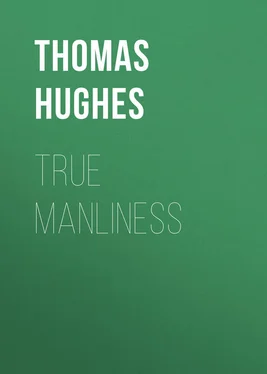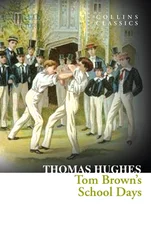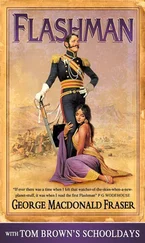Thomas Hughes - True Manliness
Здесь есть возможность читать онлайн «Thomas Hughes - True Manliness» — ознакомительный отрывок электронной книги совершенно бесплатно, а после прочтения отрывка купить полную версию. В некоторых случаях можно слушать аудио, скачать через торрент в формате fb2 и присутствует краткое содержание. ISBN: , Жанр: foreign_prose, на английском языке. Описание произведения, (предисловие) а так же отзывы посетителей доступны на портале библиотеки ЛибКат.
- Название:True Manliness
- Автор:
- Жанр:
- Год:неизвестен
- ISBN:http://www.gutenberg.org/ebooks/52534
- Рейтинг книги:5 / 5. Голосов: 1
-
Избранное:Добавить в избранное
- Отзывы:
-
Ваша оценка:
- 100
- 1
- 2
- 3
- 4
- 5
True Manliness: краткое содержание, описание и аннотация
Предлагаем к чтению аннотацию, описание, краткое содержание или предисловие (зависит от того, что написал сам автор книги «True Manliness»). Если вы не нашли необходимую информацию о книге — напишите в комментариях, мы постараемся отыскать её.
True Manliness — читать онлайн ознакомительный отрывок
Ниже представлен текст книги, разбитый по страницам. Система сохранения места последней прочитанной страницы, позволяет с удобством читать онлайн бесплатно книгу «True Manliness», без необходимости каждый раз заново искать на чём Вы остановились. Поставьте закладку, и сможете в любой момент перейти на страницу, на которой закончили чтение.
Интервал:
Закладка:
“Well, he came home with a stiff leg. The Bristol merchants gave him the freedom of the city in a gold box, and a splendidly-mounted sword with an inscription on the blade, which hangs over the mantel-piece at home. When I first left home, I asked him to give me his old service-sword, which used to hang by the other, and he gave it me at once, though I was only a lad of seventeen, as he would give me his right eye, dear old father, which is the only one he has now; the other he lost from a cutlass-wound in a boarding party. There it hangs, and those are his epaulettes in the tin case. They used to be under my pillow before I had a room of my own, and many a cowardly down-hearted fit have they helped me to pull through; and many a mean act have they helped to keep me from doing. There they are always; and the sight of them brings home the dear old man to me as nothing else does, hardly even his letters. I must be a great scoundrel to go very wrong with such a father.
“Let’s see – where was I? Oh, yes; I remember. Well, my father got his box and sword, and some very handsome letters from several great men. We have them all in a book at home, and I know them by heart. The ones he values most are from Collinwood, and his old captain, Vincent, and from his cousin, Nelson’s Hardy, who didn’t come off very well himself after the war. But my poor old father never got another ship. For some time he went up every year to London, and was always, he says, very kindly received by the people in power, and often dined with one and another Lord of the Admiralty who had been an old mess-mate. But he was longing for employment, and it used to prey on him while he was in his prime to feel year after year slipping away and he still without a ship. But why should I abuse people and think it hard, when he doesn’t? ‘You see, Jack,’ he said to me the last time I spoke to him about it, ‘after all, I was a battered old hulk, lame and half-blind. So was Nelson, you’ll say; but every man isn’t a Nelson, my boy. And though I might think I could con or fight a ship as well as ever, I can’t say other folk who didn’t know me were wrong for not agreeing with me. Would you, now, Jack, appoint a lame and blind man to command your ship, if you had one?’ But he left off applying for work soon after he was fifty (I just remember the time), for he began to doubt then whether he was quite so fit to command a small vessel as a younger man; and though he had a much better chance after that of getting a ship (for William IV. came to the throne, who knew all about him), he never went near the Admiralty again. ‘God forbid,’ he said, ‘that his Majesty should take me if there’s a better man to be had.’”
XIX
The object of wrestling and of all other athletic sports is to strengthen men’s bodies, and to teach them to use their strength readily, to keep their tempers, to endure fatigue and pain. These are all noble ends. God gives us few more valuable gifts than strength of body, and courage, and endurance – to laboring men they are beyond all price. We ought to cultivate them in all right ways for they are given us to protect the weak, to subdue the earth, to fight for our homes and country if necessary.
XX
To you young men, I say, as Solomon said, rejoice in your youth; rejoice in your strength of body, and elasticity of spirits and the courage which follows from these; but remember, that for these gifts you will be judged – not condemned, mind, but judged. You will have to show before a judge who knoweth your inmost hearts, that you have used these his great gifts well; that you have been pure and manly, and true.
XXI
At last in my dream, a mist came over the Hill, and all the figures got fainter and fainter, and seemed to be fading away. But as they faded, I could see one great figure coming out clearer through the mist, which I had never noticed before. It was like a grand old man, with white hair and mighty limbs, who looked as old as the hill itself, but yet as if he were as young now as he ever had been; and at his feet were a pickaxe and spade, and at his side a scythe. But great and solemn as it looked, I felt that the figure was not a man, and I was angry with it. Why should it come in with its great pitiful eyes and smile? Why were my brothers and sisters, the men and women, to fade away before it?
“The labor that a man doeth under the sun, it is all vanity. Prince and peasant, the wise man and the fool they all come to me at last and I garner them away, and their place knows them no more!” So the figure seemed to say to itself, and I felt melancholy as I watched it sitting there at rest, playing with the fading figures.
At last it placed one of the little figures on its knee, half in mockery, as it seemed to me, and half in sorrow. But then all changed; and the great figure began to fade, and the small man came out clearer and clearer. And he took no heed of his great neighbor, but rested there where he was placed; and his face was quiet, and full of life as he gazed steadily and earnestly through the mist. And the other figures came flitting by again and chanted as they passed, “The work of one true man is greater than all thy work. Thou hast nought but a seeming power over it, or over him. Every true man is greater than thee. Every true man shall conquer more than thee; for he shall triumph over death, and hell, and thee, oh, Time!”
XXII
The strain and burden of a great message of deliverance to men has again and again found the weak places in the faith and courage of the most devoted and heroic of those to whom it has been entrusted. Moses pleads under its pressure that another may be sent in his place, asking despairingly, “Why hast thou sent me?” Elijah prays for death. Mohammed passes years of despondency and hesitation under the sneers of those who scoff, “There goeth the son of Abdallah, who hath his converse with God!” Such shrinkings and doubtings enlist our sympathy, make us feel the tie of a common humanity which binds us to such men. But no one, I suppose, will maintain that perfect manliness would not suppress, at any rate, the open expression of any such feelings. The man who has to lead a great revolution should keep all misgivings to himself, and the weight of them so kept must often prove the sorest part of his burden.
XXIII
We have most of us, at one time or another of our lives, passed through trying ordeals, the memory of which we can by no means dwell on with pleasure. Times they were of blinding and driving storm, and howling winds, out of which voices as of evil spirits spoke close in our ears – tauntingly, temptingly, whispering to the mischievous wild beast which lurks in the bottom of all our hearts – now, “Rouse up! art thou a man and darest not do this thing;” now, “Rise, kill and eat – it is thine, wilt thou not take it? Shall the flimsy scruples of this teacher, or the sanctified cant of that, bar thy way and balk thee of thine own? Thou hast strength to have them – to brave all things in earth or heaven, or hell; put out thy strength, and be a man!”
Then did not the wild beast within us shake itself, and feel its power, sweeping away all the “Thou shalt nots,” which the Law wrote up before us in letters of fire, with the “I will ” of hardy, godless, self-assertion? And all the while, which alone made the storm really dreadful to us, was there not the still small voice, never to be altogether silenced by the roarings of the tempest of passion, by the evil voices, by our own violent attempts to stifle it; – the still small voice appealing to the man, the true man, within us, which is made in the image of God, calling on him to assert his dominion over the wild beast – to obey, and conquer, and live. Aye! and though we may have followed other voices, have we not, while following them, confessed in our hearts that all true strength, and nobleness, and manliness was to be found in the other path. Do I say that most of us have had to tread this path and fight this battle? Surely I might have said all of us; all, at least, who have passed the bright days of their boyhood. The clear and keen intellect no less than the dull and heavy; the weak, the cold, the nervous, no less than the strong and passionate of body. The arms and the field have been divers – can have been the same, I suppose, to no two men, but the battle must have been the same to all. One here and there may have had a foretaste of it as a boy; but it is the young man’s battle, and not the boy’s, thank God for it! That most hateful and fearful of all relatives, call it by what name we will – self, the natural man, the old Adam – must have risen up before each of us in early manhood, if not sooner, challenging the true man within us, to which the Spirit of God is speaking, to a struggle for life or death.
Читать дальшеИнтервал:
Закладка:
Похожие книги на «True Manliness»
Представляем Вашему вниманию похожие книги на «True Manliness» списком для выбора. Мы отобрали схожую по названию и смыслу литературу в надежде предоставить читателям больше вариантов отыскать новые, интересные, ещё непрочитанные произведения.
Обсуждение, отзывы о книге «True Manliness» и просто собственные мнения читателей. Оставьте ваши комментарии, напишите, что Вы думаете о произведении, его смысле или главных героях. Укажите что конкретно понравилось, а что нет, и почему Вы так считаете.












